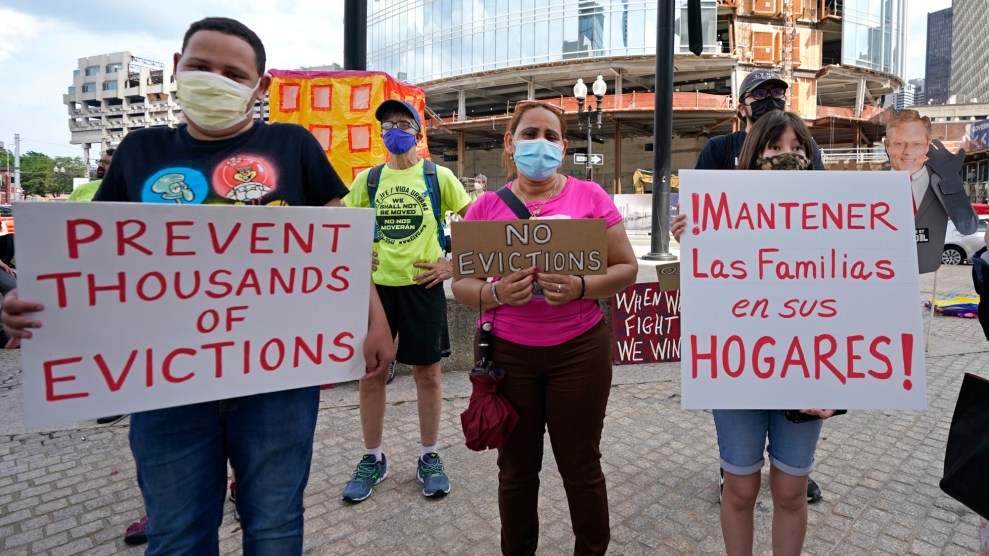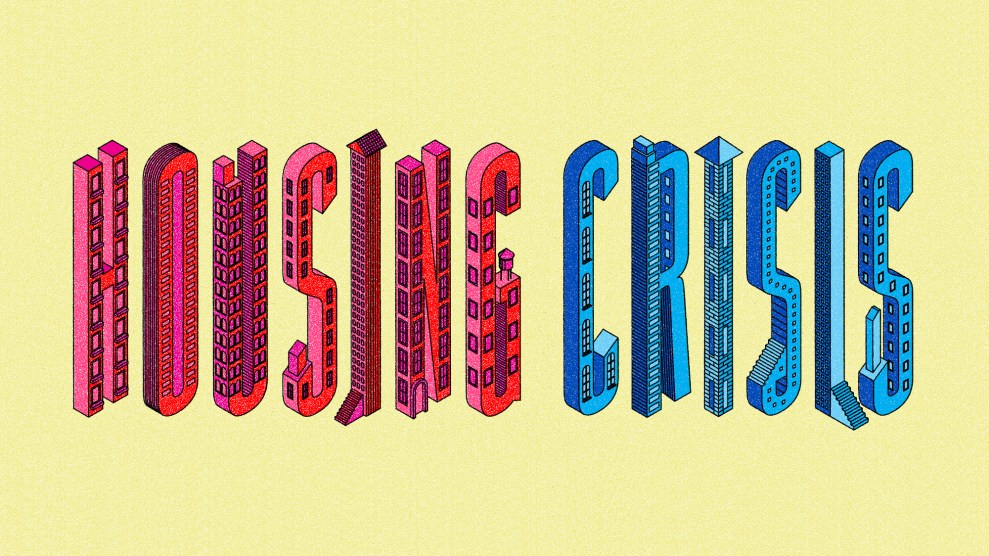
AP/Elise Amendola
Evictions are rising rapidly as pandemic-era moratoriums have ended nationwide. Citing data from the Eviction Lab, AP reports that some cities have seen eviction filings rise 50 percent higher than they were before Covid.
“Across the country, low-income renters are in an even worse situation than before the pandemic due to things like massive increases in rent during the pandemic, inflation, and other pandemic-era related financial difficulties,” Daniel Grubbs-Donovan, a research specialist at Eviction Lab, told AP.
The federal government passed a moratorium on evictions in March 2020, which was later expanded by the Center for Disease Control. But those temporary measures expired in 2021, and the $46 billion in pandemic-era emergency rental assistance provided by the federal government has been allocated. Now renters are struggling to keep up. Eviction Lab told AP that people are losing their homes at especially high rates in cities like Houston, Minneapolis, and Nashville—all places where rents have risen dramatically while incomes have struggled to keep up.
Those who are at the most risk are being hit hardest. According to Eviction Lab, poor women of color are at high risk of being evicted, as are families with children and survivors of domestic violence. Eviction filings fell by more than half in majority Black neighborhoods during the pandemic, but Eviction Lab found that those much decreased rates were still higher than the filings in white neighborhoods before the pandemic and before moratoriums.
My colleague Edwin Ross reported on evictions during the pandemic, finding that those most at risk before Covid were still disproportionately represented in informal evictions during the crisis. The harm felt by families who are forced out of their homes is expansive:
Forcing families from their homes, research shows, creates much more than an inconvenience. “It is critical to underscore that these evictions don’t just represent lost housing. Evictions have wide-reaching impacts on families and communities,” Gabriel Schwartz, a social epidemiologist and postdoctoral fellow at the University of California, San Francisco’s Social Policies for Health Equity Research Program, told me via email. Schwartz, who also studies the health effects of uprooting a family, adds that evictions “represent acute financial shock, displacement, social network disruption, and psychological stress.”
The rates of eviction in some cities that Eviction Lab tracks are the highest seen since the start of the pandemic. But the flip side of this crisis is the vigor of housing advocates’ efforts to curb evictions and to make affordable housing more accessible: They have pushed for policies like free legal assistance for tenants, and sealing evictions after a specific timeframe has passed. “People, and especially young people, are just feeling the acute stress and frustration when it comes to things like eviction, or double digit rent hikes or just the violence and unfairness of what it means to be a renter in America. And they are pushing hard against that,” said Matthew Desmond, the founder of Eviction Lab, in a blog post celebrating the victories of housing justice in 2022, “It’s very exciting.”


















